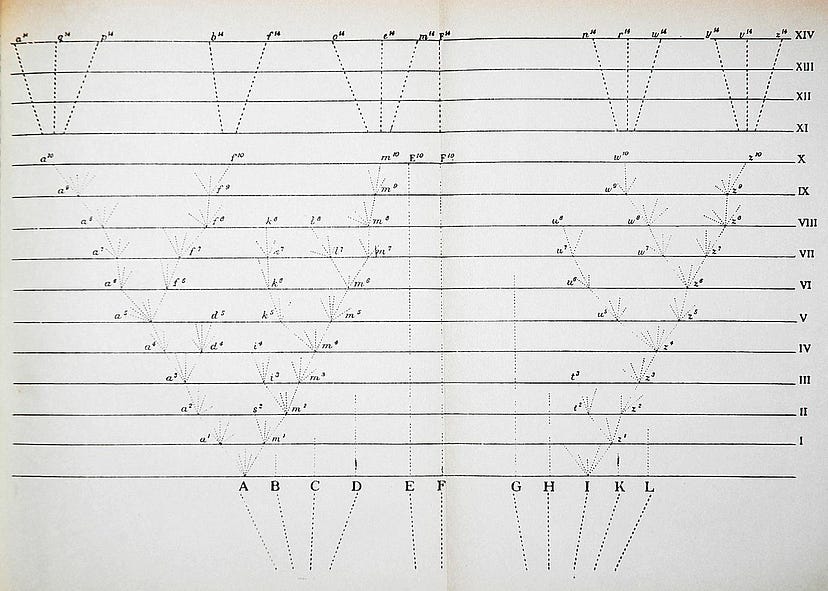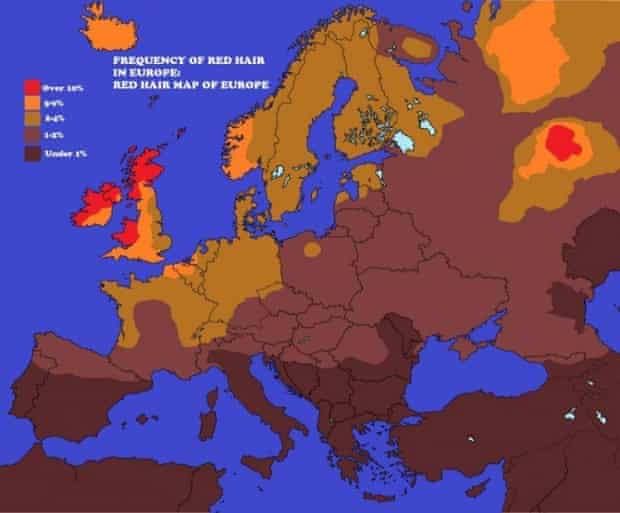The Palette of Being is a very useful idea that is related to Cumulative Cultural Evolution (CCE) and autopoiesis. From CCE, humans are able to pass on new ideas from one generation to the next, made possible by the tool of inscribed language.
Peter Nonacs group at UCLA as well as Stuart West at Oxford research Major Evolutionary Transitions (MET) West elucidates that modern hominids integrate the remnants of four major stages of MET that have occurred over deep time. Amanda Robins, a researcher in Nonacs group posits the idea that our species of modern hominids are undergoing a Major Systems Transition (MST), due specifically to our development of inscribed language.
CCE emerges new technologies that shape our human environments in time frames far faster than biological evolutionary timeframes. New human experiences are created which have never been exposed to human brains before, which feedback to affect our biological evolution as well in the process of gene-culture coevolution (GCC), also known as Dual Inheritance theory. In this way, CCE and GCC are entangled.
"Gene–culture coevolution is the application of niche-construction reasoning to the human species, recognizing that both genes and culture are subject to similar dynamics, and human society is a cultural construction that provides the environment for fitness-enhancing genetic changes in individuals. The resulting social system is a complex dynamic nonlinear system. " (https://www.ncbi.nlm.nih.gov/pmc/articles/PMC3048999/)
This metaphor of experiences constituting different colors on a Palette of Being is a powerful one that can contextualize human experiences from a deep time framework. One could argue that language usage automatically forces us into an anthropomorphic lens, for sophisticated language usage at the level of humans appears to be unique amongst our species. Within that constraint, the Palette of Being still provides us with a less myopic, less immediate and arguably less anthropomorphic view of human experience. It is philosophically problematic, however, in the sense that we can speculate about nonhuman modalities of being but never truly experience them. Philosopher Thomas Nagel wrote his classic paper "What it's like to be a bat" to illustrate this problem of experiencing the other. (https://warwick.ac.uk/fac/cross_fac/iatl/study/ugmodules/humananimalstudies/lectures/32/nagel_bat.pdf)
We can also leverage the Palette of Being in education. Deep Humanity (DH) BEing Journeys are a new kind of experiential, participatory contemplative practice and teaching tool designed to deepen our appreciation of what it is to be human. The polycrisis of the Anthropocene, especially the self-induced climate crisis and the Covid-19 pandemic have precipitated the erosion of stable social norms and reference frames, inducing another crisis, a meaning crisis. In this context, a re-education of embodied philosophy is seen as urgent to make sense of a radically shifting human reality.
Different human experiences presented as different colors of the Palette of Being situate our crisis in a larger context. One important Deep Humanity BEing journey that can help contextualize and make sense of our experiences is language. Once upon a time, language did not exist. As it gradually emerged, this color came to be added to our Palette of Being, and shaped the normative experiences of humanity in profound ways. It is the case that such profound shifts, lost over deep time come to be taken for granted by modern conspecifics. When such particular colors of the Palette of Being are not situated in deep time, and crisis ensues, that loss of contextualizing and situatedness can be quite disruptive, de-centering, confusing and alienating.
Being aware of the colors in the Palette can help us shed light on the amazing aspects that culture has invisibly transmitted to us, helping us not take them for granted, and re-establish a sense of awe about our lives as human beings.


